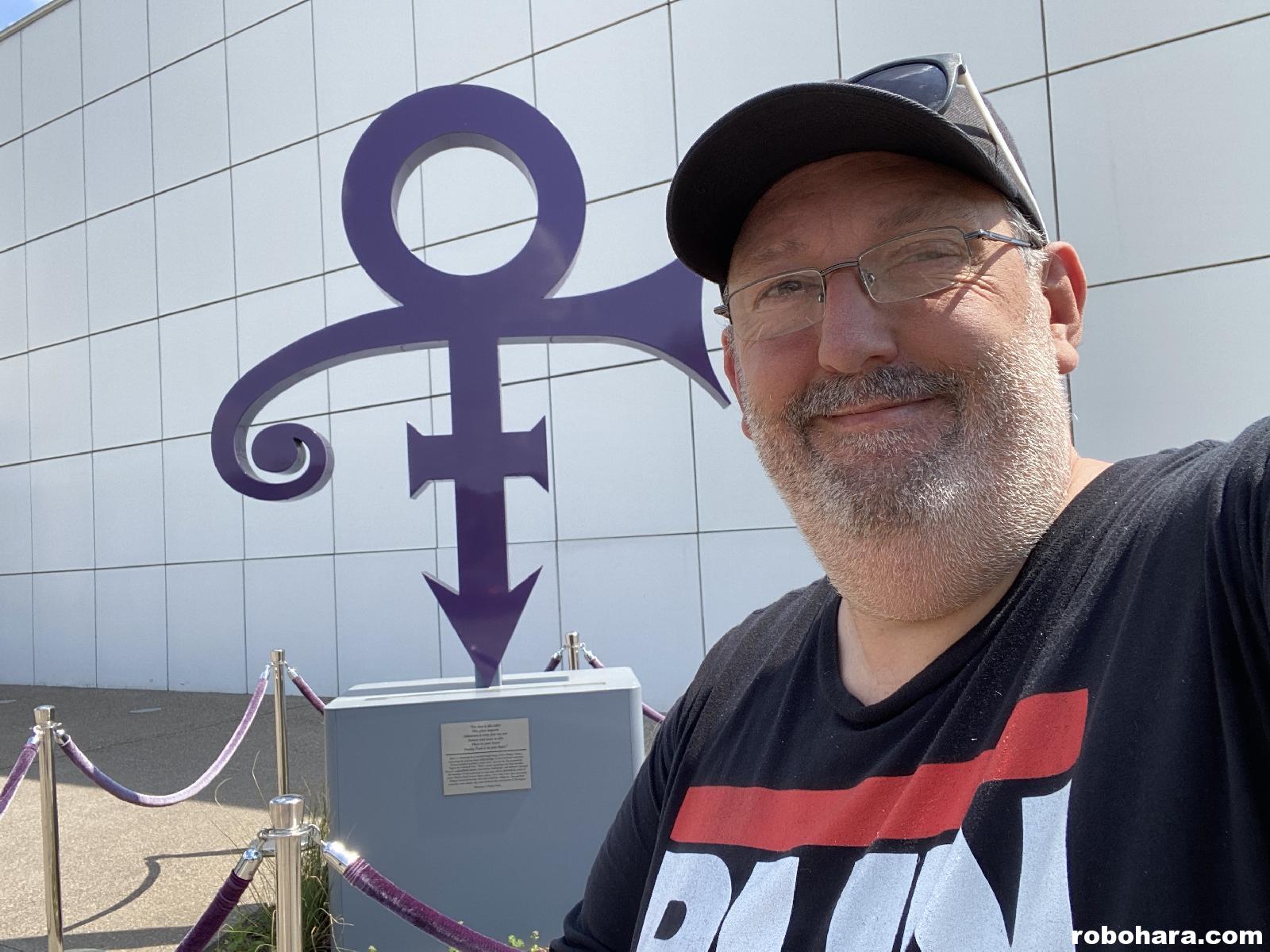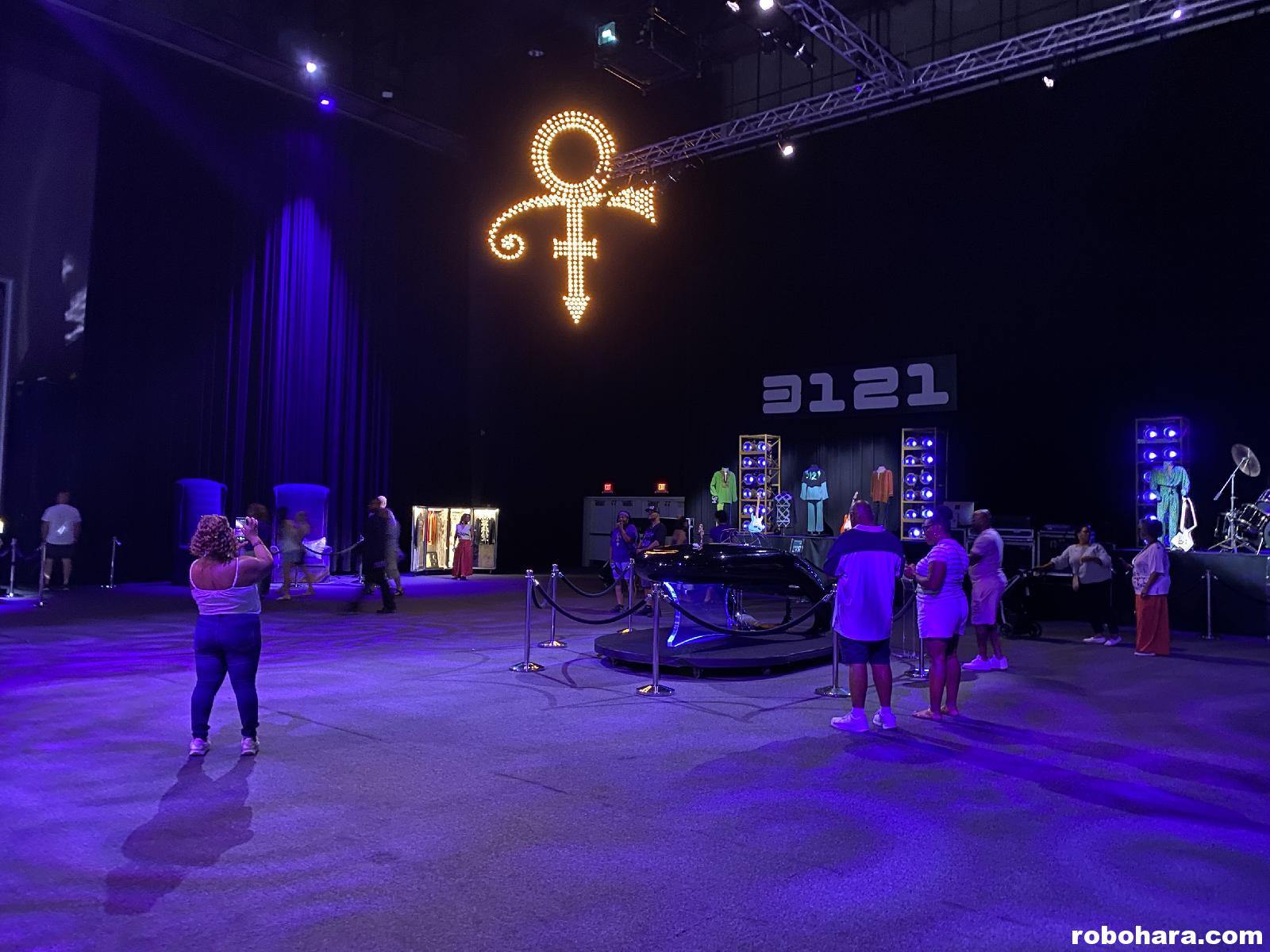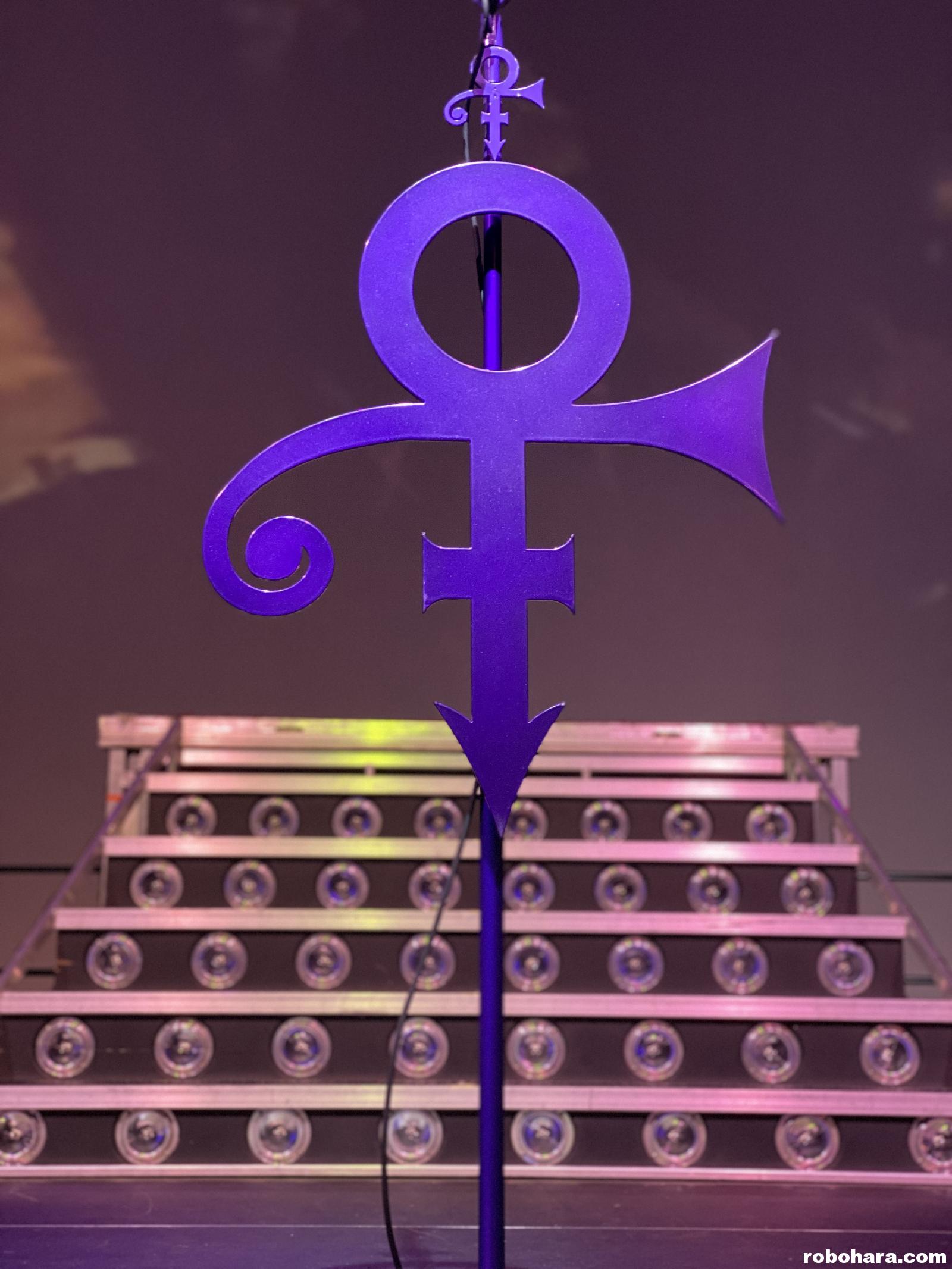
While I wouldn’t call myself a rabid Prince fan, everyone who grew up in the 1980s was, on some level or another, a fan of Prince’s music. In 1984, songs from Prince’s album Purple Rain took over radio airwaves, with many of those same songs remaining in rotation on 80s radio stations today. And while Purple Rain itself was enough to cement Prince’s place in music history, it only represents a blip in Prince’s discography and doesn’t include many of his biggest hits like “Little Red Corvette,” “Kiss,” “Raspberry Beret,” and “1999.” After the success of Purple Rain, Prince began construction on Paisley Park, a complex that served as his entertaining space, a home to his multiple recording studios, and while he was in town, his residence. Even while he was alive Prince had planned to turn Paisley Park into a museum, which is exactly what happened after his untimely passing in 2016.
Prince was a complicated and often contradictory man. He loved performing live before his fans, but hated having those performances captured on cellphone by those same fans. He was a proliferous musician who wanted the world to hear his music, but filed copyright claims against any YouTube video that featured his music (even incidentally). In true Prince fashion, Paisley Park is open to the public for tours, and the tour begins with visitors powering off their cellphone and placing them inside electronically sealed bags for the duration of the tour. No pictures are allowed for the majority of the tour, which is just how Prince would have wanted it.
Prince, like Michael Jackson and a few other celebrities, achieved such a level of success that non-performing public appearances became the exception to the rule. Paisley Park wasn’t just Prince’s home; it was his entire world. It was not surprising to see offices and lounges just off the main atrium. It’s not until we saw the snack bar (complete with a custom Purple Rain vending machine) that we began to imagine what Paisley Park must have been like. In the corner of the snack bar is a couch facing a flat screen television showing clips from an WNBA game that Prince attended.
“Prince was a big fan of the WNBA,” we were told by our tour guide. “After one game, he invited the entire team back to Paisley Park.” That’s partly what Paisley Park was; a place where Prince, away from prying eyes, could hang out with friends, and musicians, and celebrities, and sometimes, basketball teams.
Many of those musicians are name dropped as visitors enter “Studio A,” the first and largest of four recording studios located inside the complex. All the bands Prince was associated with (Morris Day and the Time, The Revolution, The Family, Wendy & Lisa, Vanity 6, the New Power Generation, Apollonia 6, and many others) recorded here, as did some of the biggest musical acts of the 80s and 90s including R.E.M., Madonna, Stevie Wonder, and hundreds of others. According to the New York Times, in the summer of 1990 four songs on the Billboard Top 10 were either recorded or produced at Paisley Park. No matter how many musicians visited the Park, the person who used the studio more than anyone was Prince. Today the space contains several of Prince’s instruments including the guitars, keyboards, and a drum machine all used by Prince in the studio. The main attraction in the room is Prince’s mixing console, the place where most of his music released since the late 80s was recorded.
“There are bedrooms upstairs,” our tour guide pointed out, “but most of the time, Prince lived behind that mixing console.”
As our group passes underneath a pair of Prince’s eyes, painted on the ceiling above, we are told that most everything we will see in Paisley Park was the result of a conscious and intentional decision made by Prince. This includes everything everything from the the sky blue walls with painted clouds in the atrium to the purple parking cones and velvet ropes outside the park. There are many bold colors inside Paisley Park, but purple and gold dominate most spaces.
Prince was born to entertain, and always gave audiences what they wanted. In one interview discussing a new album, Prince said he would like nothing more than to perform the album in its entirety in concert, but was self-aware enough to know that’s not what people expected. Along those same lines, Paisley Park is about inspiration, and creativity, and creating a space free of judgement. That being said, you can bet your frilly shirt Prince’s motorcycle from Purple Rain is on display along with his most famous guitars, outfits, and 300 pairs of his shoes.

Yes, 300 pairs — which, apparently, is about a third of the pairs of shoes located at Paisley Park. The blue shoes with painted clouds from the Raspberry Beret video are there, as are his Batdance shoes, his Super Bowl shoes, a pair of flip fops, and pretty much any other pair of shoes you would ever want to see. All of them are a ladies size 5 1/2, many of them with worn toes and heels from spinning and dancing on stage.

The tour concludes with a pair of rooms containing performance stages. The first room served as a recording sound stage where many of Prince’s music videos were filmed. Many other music videos were filmed in the same space, and the entire room was used as a sound stage (much of Graffiti Bridge was filmed there, as were most of the interior scenes for Grumpy Old Men, Drop Dead Fred, and several other films.
The second stage and final room of the tour contained a smaller stage within a club-like environment. It was here that Prince often threw parties, entertained guests, and occasionally invited members of the general public over for performances. Our tour guide, unsurprisingly a Prince fan, was able to attend one of those performances. According to her, invitations generally came “after a friend called a friend who called a friend in the middle of night.” After receiving one such call at one in the morning, our guide hopped out of bed and sped down to Paisley Park. After dancing and listening to a DJ spin records for nearly two hours, Prince appeared on stage, played several songs on piano, thanked everyone for coming out, and disappeared as quickly as he had appeared.
Throughout the first part of his career, Prince worked in and navigated his way through the rules of the traditional recording industry. It wasn’t until the mid-90s that Prince fought to obtain the rights to his own master recordings — something seen as a wise business decision today, but nearly unheard of back then and a move that caused a deep rift between Prince and Warner Bros. that led Prince to change his name to an unpronouncable symbol and appear in public with the word “slave” written on his face. He eventually won that battle and ended up with everything he wanted — including a complex that afforded him the ultimate freedom to do, create, and record everything he wanted at any time.
It’s too bad he didn’t have it longer. It’s too bad we didn’t have him longer.


Really great writeup Rob. Must have been something to see. Unique person with crazy talent, that’s for sure. Thanks for sharing.